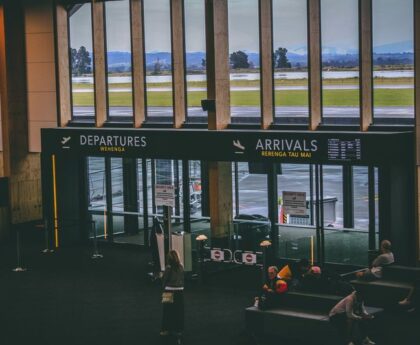The Controversial Bibby Stockholm Barge: A Solution or a Problem?
Introduction
The arrival of the Bibby Stockholm housing barge in Dorset, UK has sparked intense debate and raised important questions about the treatment of asylum seekers and the effectiveness of policies aimed at addressing the migrant crisis. While the government claims that the barge provides a cost-effective solution to accommodate asylum seekers, critics argue that it is inhumane and fails to address the underlying issues. This report examines the concerns surrounding the barge, analyzes the arguments from both sides, and offers insights into possible alternative approaches.
The Controversy and Safety Concerns
The Bibby Stockholm housing barge has faced significant opposition from human rights groups and local residents. Critics argue that housing asylum seekers on the barge is “inhumane” and raise concerns about the impact on local services. These concerns are further exacerbated by delays caused by legal challenges and a failure to transfer certain asylum seekers to the barge. Refugee charity Care4Calais has reported that some of the individuals who were supposed to be transferred to the barge have experienced traumatic experiences at sea, disability, and have survived torture and modern slavery.
Moreover, the Fire Brigades Union (FBU) has raised concerns about safety on the barge, pointing to narrow exits and potential overcrowding as areas of concern. Despite these concerns, the Home Office insists that the barge is safe and cites previous successful uses of similar vessels in Germany and the Netherlands to accommodate homeless individuals and asylum seekers.
Asylum Policy and Criticisms
The arrival of the Bibby Stockholm barge coincides with the government’s plan to make several announcements on asylum policy. These include increasing fines for employers and landlords who employ or house illegal migrants. Additionally, discussions have emerged regarding the possibility of flying illegal migrants to the British overseas territory Ascension Island, located in the southern Atlantic.
Critics argue that the Bibby Stockholm is emblematic of the government’s punitive approach to immigration and asylum seekers. Organizations such as Amnesty International have compared the barge to “prison hulks from the Victorian era” and express concern about the government’s failure to provide safe and dignified accommodation for refugees.
Freedom from Torture, an organization that provides therapeutic care for survivors of torture seeking protection in the UK, has called for an end to the practice of housing refugees in unsafe and undignified conditions. They argue that forcing people to live in such conditions only exacerbates the trauma they have experienced and fails to meet international standards.
Alternative Approaches and Future Considerations
The government argues that the use of the Bibby Stockholm housing barge is a cost-effective alternative to placing asylum seekers in hotels, which is said to cost the taxpayer £6 million a day. The government plans to increase the number of individuals on board to 500, with the potential for further barges in the future. However, the full costs of the barge have not been disclosed, leading to skepticism from refugee campaign group Reclaim The Sea, which claims that the barge may ultimately be more expensive than hotel accommodations.
Critics argue that alternative approaches, such as using ex-military bases or other forms of temporary shelter, should be considered. The government’s plan to explore this option in East Sussex, Essex, and Lincolnshire offers a glimpse into a potential long-term solution that could provide better value for taxpayers and better care for asylum seekers.
It is essential for the government to take into account the concerns raised by human rights groups and local communities while developing future strategies. Failure to do so risks further dividing society and perpetuating an inefficient and inhumane system for dealing with the complex issue of migration and asylum.
Conclusion
The Bibby Stockholm housing barge has become the center of a heated debate on how best to address the housing needs of asylum seekers in the UK. While the government sees it as a cost-effective solution, critics argue that it is inhumane and fails to address the underlying problems of the asylum system. Balancing the concerns of local communities, human rights organizations, and the need to find cost-effective solutions is a complex task that requires careful consideration and an open dialogue. Ultimately, the treatment of asylum seekers is a reflection of our societal values and should be a priority for any government.

<< photo by n 🎈 >>
The image is for illustrative purposes only and does not depict the actual situation.




